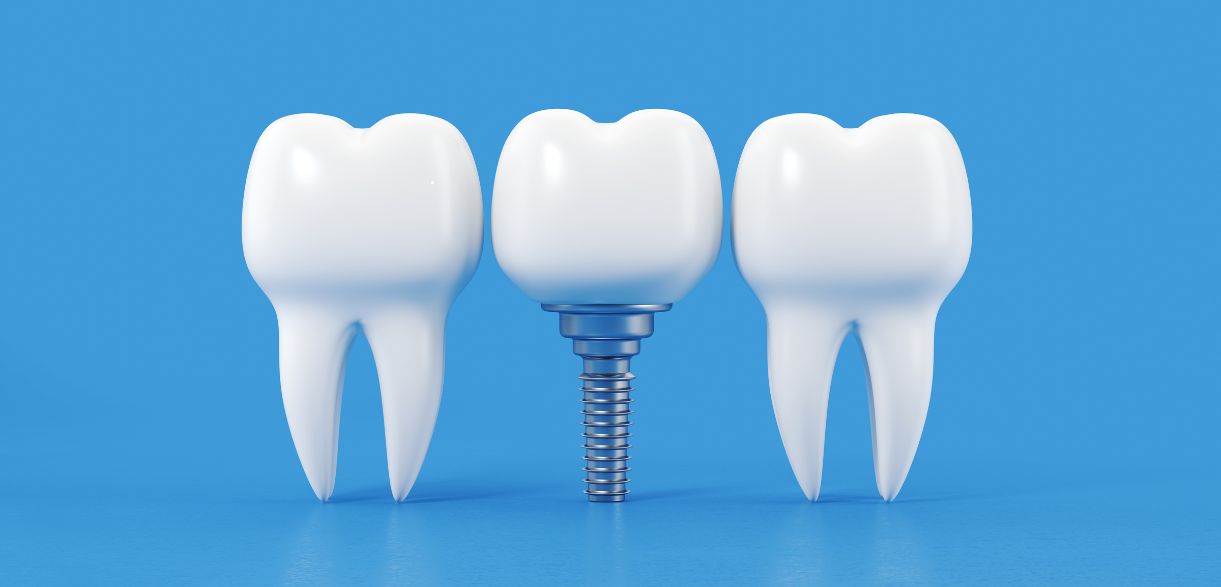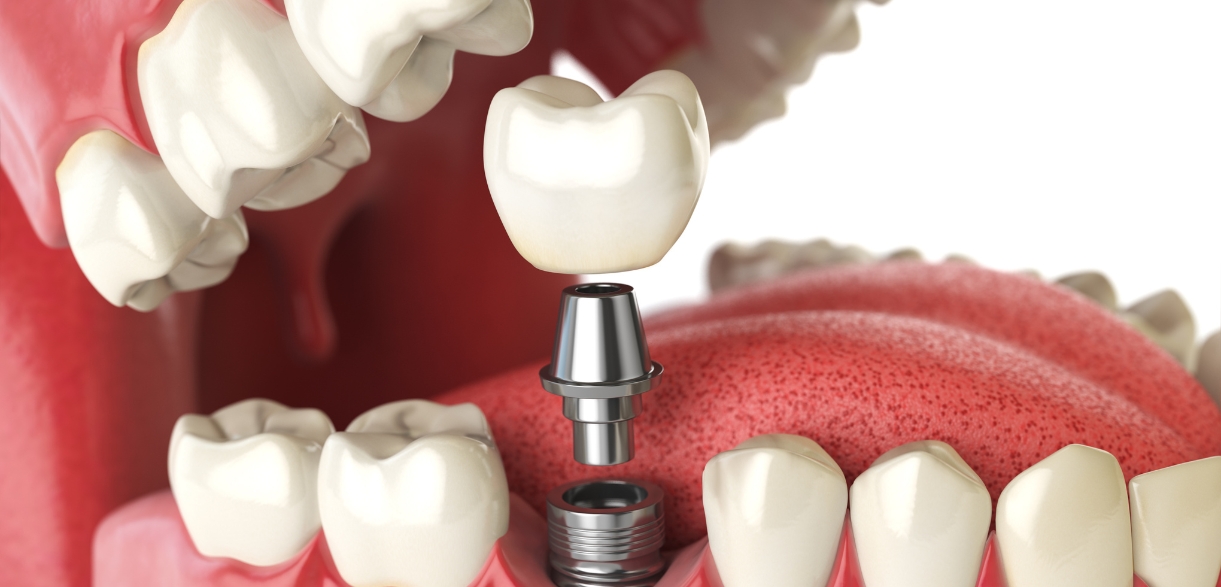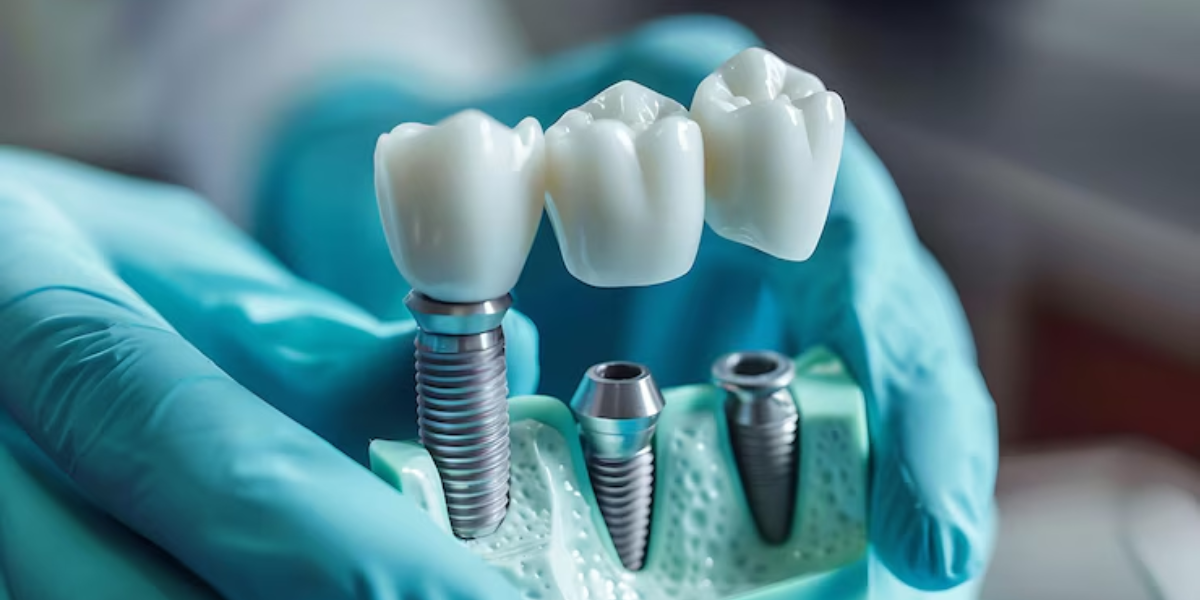New Patients Welcome!

Dental implants offer one of the most advanced and effective solutions for replacing missing teeth due to their functional aesthetic value. They, however, may compel a person with a history of gum disease to wonder if they remain suitable candidates for the same. Chronic gum disease or periodontal disease painstakingly damages the gums and surrounding bone that preserve the fittings required to accomplish implants, making their insertion completely impossible. This blog will discuss whether dental implants can be implanted during periodontal disease, the involvement of gum diseases with implant insertion, and management conditioning ahead for a successful outcome.
What Are Dental Implants?
Before diving deep into gum diseases and their consequences, you must understand what dental implants West Palm Beach are. A dental implant is a titanium post surgically embedded into the jawbone to replace a missing tooth root. The implants fuse with the bone through osseointegration, providing a secure crown, bridge, or denture base. They are highly durable, long-lasting, and function like natural teeth.
How Do Gum Diseases Affect Your Oral Health?
Oral or periodontal diseases are infections that affect the surrounding tissue of the teeth, mainly due to plaque formation. It can be divided into two basic forms:
- Gingivitis is the early stage of gum disease, leading to inflammation with red gums that bleed when patients brush.
- Periodontitis is the stage of gum disease that affects the attached connective structure surrounding the teeth and into the adjacent bone.
The success of dental implants entirely depends on jawbone health and the condition of the gums. You need to deal quickly with gum diseases to avoid significant complications.
Can You Have Dental Implants If You Have Gum Disease?
The first and short answer is: It depends. If you have gum disease, you might still be eligible for dental implants, but your dentist should first treat the problem before any implant procedure. If you suffer from mild to moderate gum disease, a thorough cleaning might be enough to go ahead with dental implants. Your dentist might conduct scaling and root planing to remove plaque and tartar from beneath the gum line. Advanced gum diseases lead to severe conditions. Severe gum disease may lead to massive bone loss in the jaw; your dentist will do bone grafting before suggesting implants.
How To Treat Gum Diseases Before Dental Implants
Never rush with dental implants while suffering from gum diseases. You need to address the issues first to ensure successful implementation. Check out the treatment options:
- Scaling And Root Planning- Professionals clear the plaque and tarter buildup beneath the gumline. It will automatically improve gum health.
- Antibiotics- Your dentist might prescribe a few antibiotics based on the condition.
- Bone Grafting- A dentistry professional undertakes this procedure when the need arises to enhance jawbone health.
- Periodontal Surgery- is only required in the extreme cases of gum diseases, where non-surgical procedures are no longer an option.
Maintaining Your Oral Health After Implants
After receiving dental implants, it’s crucial to maintain excellent oral hygiene to prevent gum disease from recurring and compromising the success of your implants. Brush your teeth at least twice daily with a soft-bristled toothbrush and floss daily to remove plaque and bacteria. Schedule routine dental check-ups to ensure your implants and gums are healthy. Smoking significantly increases your risk of gum disease and implant failure, so it’s essential to quit if you want your implants to last.
Yes, You Can Get Dental Implants with Gum Disease
While gum disease can complicate dental implants, it doesn’t necessarily disqualify you from getting implants. The key is to treat the gum disease first and address any damage to the gums or jawbone. Working closely with a skilled dentist or periodontist, you can restore your oral health and enjoy the long-term benefits of dental implants. Visit a dentist today if you are considering dental implants and suffering from gum diseases.





